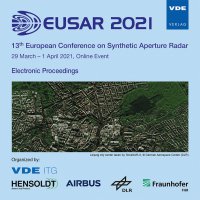Influence on Radar Back-scatter of Oil Spreading and Evaporation in Marine Oil Spills
Konferenz: EUSAR 2021 - 13th European Conference on Synthetic Aperture Radar
29.03.2021 - 01.04.2021 in online
Tagungsband: EUSAR 2021
Seiten: 6Sprache: EnglischTyp: PDF
Autoren:
Chedi, Isa Yunusa; Amitrano, Donato; Guida, Raffaella (Surrey Space Centre, University of Surrey, Guildford, UK)
Inhalt:
Oil spread, and evaporation are the earliest oil weathering processes during oil spill incidence in water. They transform the physical and chemical properties of oil within a few hours from the spillage and affect the radar back-scattering from polluted sea surface. In this study, the backscattering characteristics of X- and S-band SAR were examined and analysed using regression curve fits. The results revealed that oil spread, and evaporation occur concurrently. Moreover, evaporation primarily increases oil viscosity and reduces oil quantity in a spill. The rate of oil spreading significantly affects radar backscatter through progressive thinning. While backscattering from mineral oil is generally a logarithmic curve, the spreading of crude and diesel oil spills are functions of power and logarithmic curves respectively. In addition, there is an inverse relationship between oil spreading and radar backscattering coefficient.


